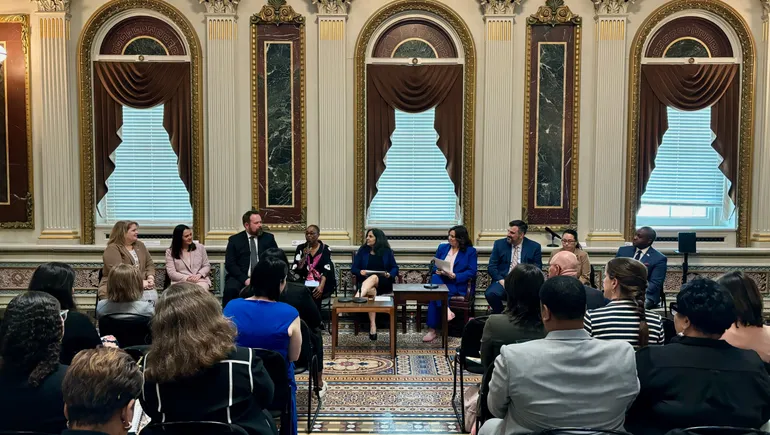During this summer, a team of students from MIT embarked on a journey to the sou …
White House and Education Department emphasize the importance of continuous learning in the summer
Jennifer Livingstone

Encouraging school districts to enhance their summer learning programs, White House and U.S. Department of Education officials emphasized the importance of providing rigorous and engaging courses by utilizing available COVID-19 emergency funds and other federal resources during a meeting on Wednesday.
School districts were urged to intensify their efforts in ensuring all students have access to summer learning, Deputy Secretary Cindy Marten of the Education Department advised attendees, including educators, advocates, local government officials, and college and nonprofit leaders.
At the convening, representatives from Tuscaloosa City Schools in Alabama and Rochester City School District in New York shared their experiences in expanding summer learning opportunities.
In Rochester, summer programs are available at 26 locations across the city through partnerships with 14 community organizations, offering academic and enriching experiences, along with transportation and meals for participating students, noted Superintendent Carmine Peluso.
The “cradle to career” approach in Rochester involves a range of activities from hiking, biking, and book clubs for elementary students to workforce development opportunities for high schoolers to earn income during the summer, emphasized Liliana Ruiz, director of special projects for the Office of Mayor.
In Tuscaloosa, summer learning is a key strategy to address achievement gaps, with a focus on making programs accessible to students who stand to benefit the most, according to Andrew Maxey, the district’s director of strategic initiatives.
The district’s summer program is cost-free for students and includes transportation and meals, underscored Maxey, emphasizing the broader benefits of summer programming, such as access to school nurses and enhanced physical safety.
Finding funding support
Following President Joe Biden’s proposal for an $8 billion spending plan in fiscal year 2025, which includes a new Academic Acceleration and Achievement grant program, discussions are underway to outline specific initiatives to enhance attendance, tutoring, and summer and extended learning opportunities at state and district levels.
Biden’s emphasis on tutoring as a means to improve achievement levels was reiterated during his State of the Union address on March 7.
“Highlighting the bipartisan and nonpartisan nature of these issues, Neera Tanden, White House domestic policy advisor, noted the broad understanding and support for investments in education when discussing the importance of summer learning during the convening,” Neera Tanden stated.
<

